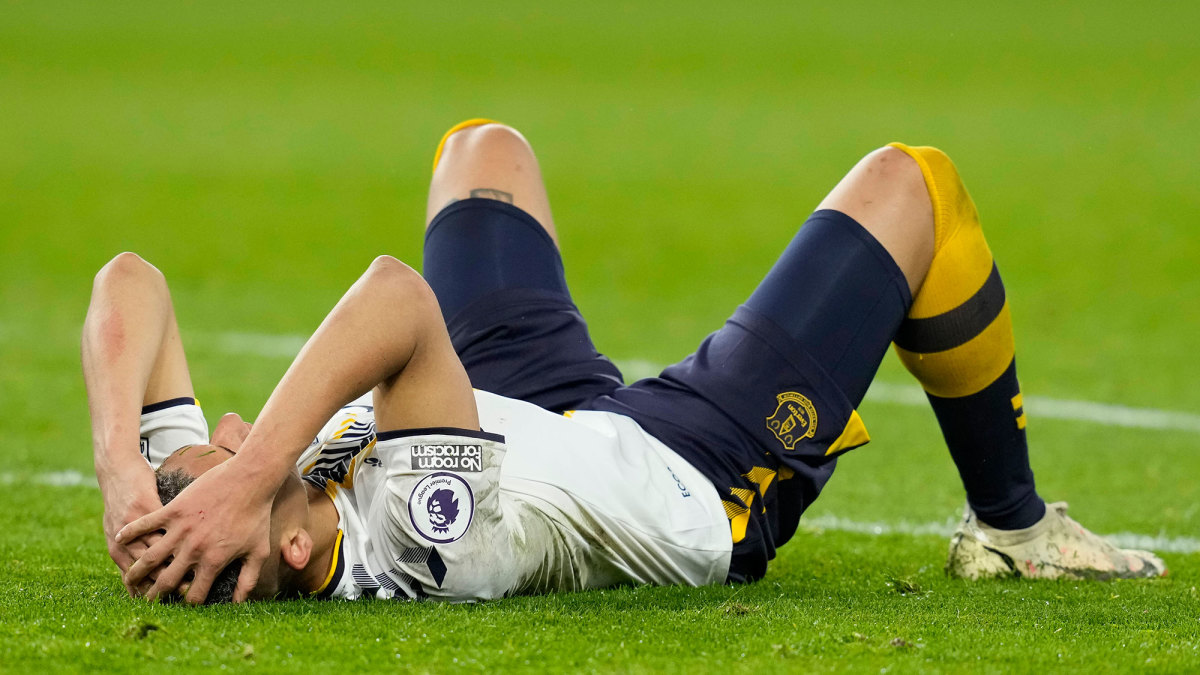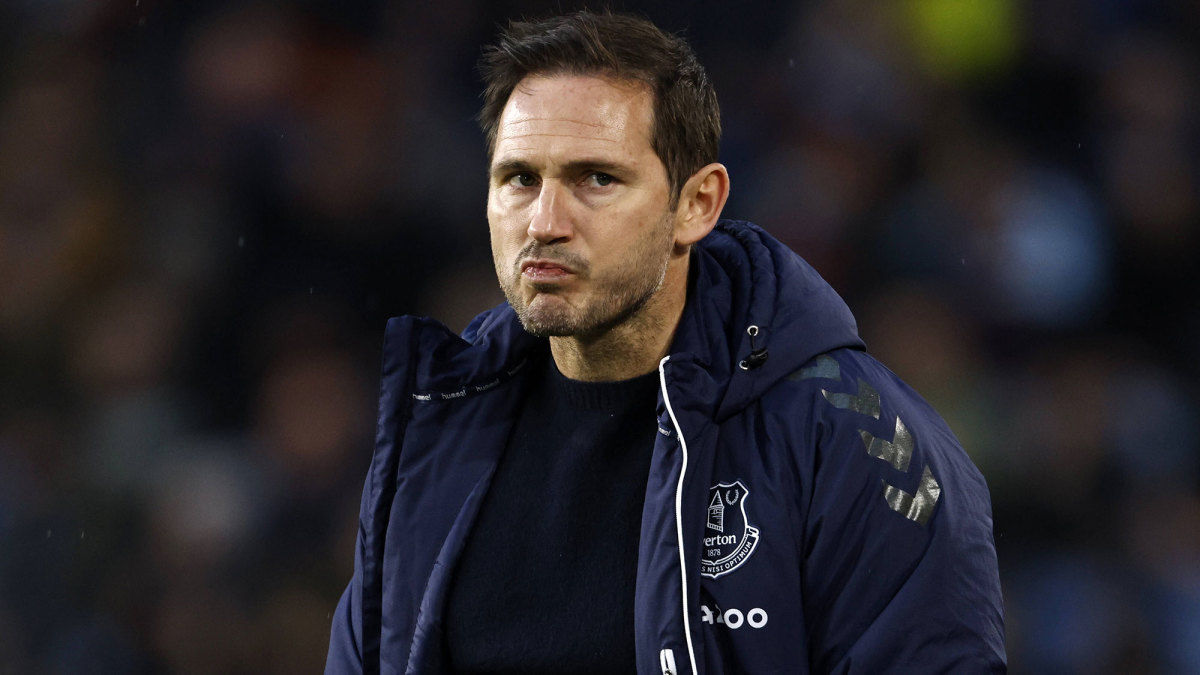Everton’s Relegation Threat Has Become Frighteningly Real

“I’m not sure these know how to win a game, lads,” Sean Dyche said to his Burnley players at halftime on Wednesday, referring to Everton. “Away from home particularly.”
It was a bold gambit given his own side had, at that point, won only three games all season, but it worked. Burnley came from 2–1 down to win 3–2 thanks to an 85th-minute Maxwel Cornet goal. With nine games this season remaining for both, Burnley now trails Everton by a single point for 17th place in the Premier League and the safety that comes with it. If reality had not quite dawned before defeat at Turf Moor, it certainly has now: Everton is in serious danger of being relegated for the first time since it returned to the top flight in 1954.
Watford is only two points behind Burnley, having played a game more, and it’s still possible that Leeds, which plays Watford this weekend, could get dragged into the battle. Realistically, Norwich probably has too much to do, so it’s two clubs from three, or possibly four, to join the Canaries in being relegated. And for Everton that could be devastating.

Financial results released last week showed losses of £120 million, which Everton blamed on the pandemic (despite record turnover). That takes its losses to £373 million over three years, by far the highest in the league, and has led to disquiet among other Premier League clubs given the scale of previous losses means it was operating under financial restrictions (Clubs are allowed to lose only £105 million over a three-year period, although exceptions are made for investment in infrastructure and allowances have been made for the loss of income during the pandemic).
Even beyond that, the fact that wages are at 95% of turnover (compared to an advised maximum of 70%) is unsustainable even before considering the severe reduction in revenue relegation would entail. It’s understood that no Everton players have relegation clauses in their contracts—which is to say, they would operate on the same salaries in the Championship. The club has also begun work, after years of wrangling, on a move to a new stadium at an estimated cost of around £500 million. And all this just as it’s been forced to sever ties with its generous sponsor (and business partner of owner Farhad Moshiri), Alisher Usmanov, the Russian oligarch who has been sanctioned by the U.K. government.
Consistently, Everton has signed players on considerable wages who are in decline: James Rodríguez, Theo Walcott, Alex Iwobi, Moise Kean, André Gomes, Dele Alli and Donny van de Beek, to name a few. A couple of experienced signings can make sense. Bargains can be found in players discarded elsewhere, into which category perhaps Andros Townsend and Demarai Gray fall, but accumulating assets of diminishing value makes no sense. Nothing at Everton does. Lucas Digne was sold at the beginning of the January transfer window, and Nathan Patterson, Vitaliy Mykolenko and Anwar El Ghazi signed at the behest of Rafa Benítez, who was promptly sacked.

Into which chaos entered Frank Lampard. He had been out of work for a year since being sacked by Chelsea. There was a sense he was taking his time, waiting for the right job to become available. He rejected the possibility of going to Norwich. He was interviewed for the Aston Villa and Crystal Palace jobs but overlooked. Everton proved too great a lure, and he was appointed after fans effectively rejected the other major candidate, Vítor Pereira.
There were two major criticisms of Lampard’s previous management, at Derby and Chelsea. The first was tactical: His teams struggled to defend against counters and set pieces. Burnley’s opener, scored by Nathan Collins amid the shambles following a corner, suggested set plays remain a problem. The second was harder to define, and Lampard seemed thin-skinned, personally very defensive, willing to blame players—something that effectively alienated the Chelsea squad after a Boxing Day defeat to Arsenal.
After Everton’s heavy FA Cup quarterfinal defeat to Crystal Palace, Lampard asked if his players really had the “bollocks” to win matches. This felt like a very familiar deflection tactic. After Sunday’s defeat to West Ham, he changed tack and blamed “circumstances.” Six away games have brought six defeats. Against West Ham and Burnley, Everton has not been poor, as such, just accident-prone, lacking the composure and clarity of vision needed to win. Everton has won just two of nine league games under Lampard. The club is sinking, and he looks increasingly out of his depth.
Others have failed before him. Roberto Martinez, Ronald Koeman, Sam Allardyce, Marco Silva and Benítez have all been sacked by Moshiri. Carlo Ancelotti was under pressure when he left for Real Madrid. Everton may be an impossible job, but whoever the right person to be manager there is, it’s looking increasingly unlikely that it’s Lampard. And with a brutal fixture list for the season run-in, Everton’s stay in England’s top flight is looking increasingly unlikely, too.
More Soccer Coverage:
